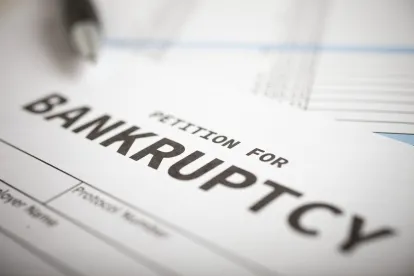On March 16, 2020, California Governor Gavin Newsom released an Executive Order (N-28-20) aimed at protecting renters and homeowners from losing their homes or suffering further financial hardship as a result of the COVID-19 pandemic.
Shortly thereafter, on March 23, 2020, the State’s Business, Consumer Services and Housing Agency and the Department of Business Oversight (the “Department”) released additional guidance concerning the Executive Order for financial institutions, escrow agents, finance lenders and servicers, student loan servicers, residential mortgage lenders and servicers, and mortgage loan originators. This guidance recognized the loss of income and other financial hardships already experienced by many Californians and encourages financial institutions and lenders to meet the financial services needs of customers and communities affected by the pandemic.
Specifically, with respect to financial institutions, the guidance reiterates the Executive Order’s request that: (1) financial institutions implement an immediate moratorium on foreclosures arising from causes related to COVID-19, and (2) financial institutions identify tools to be used to afford Californians relief from the threat of residential foreclosure and displacement, and to otherwise promote housing security and stability during the state of emergency.
Additionally, the Department encourages financial institutions to adopt certain practices during this time, like waiving ATM, overdraft, and late fees; increasing ATM daily withdrawal limits; increasing credit card limits; and offering other accommodations. The Department also encourages financial institutions to modify the terms of existing loans and restructure debt obligations for affected borrowers, so long as prudent banking practices are in place. The Department appreciates that as a result of the current situation, some financial institutions may experience an increase in their levels of delinquent and non-performing loans, and will consider these “unusual circumstances” when reviewing the institution’s financial condition.
With respect to escrow agents, finance lenders and servicers, student loan servicers, residential mortgage lenders and servicers, and mortgage loan originators (“LOs”), the guidance indicates that the Department will not criticize certain work from home arrangements for student loan servicers or licensees sponsoring LOs so long as: (1) no physical business records are kept at home (or anywhere other than a licensed location), (2) there are no in-home meetings with customers, (3) there are supervisory procedures in place, (4) all devices used are properly encrypted, and (5) necessary measures are taken to protect consumer data privacy. Additionally, the Department recommends that licensees offer payment accommodations (such as allowing borrowers to defer or skip payments or extend payment due dates).
The guidance emphasizes that all parties should continue to comply with the provisions under the California Homeowner Bill of Rights (“HBOR”). Of course, compliance with such provisions may prove challenging as many financial institutions have been forced to shift employee resources to handle the recent barrage of refinancing and workout requests, which means fewer employees may be available to act as “single points of contact” or comply with other requirements under HBOR.
Finally, on March 25, 2020, it was reported that California has reached a deal with several financial institutions, including four of the country’s five largest banks, to provide relief to homeowners affected by COVID-19. Reporting indicates that the large financial institutions, as well as a number of other credit unions and state banks, have committed to a 90-day forbearance on mortgage payments for homeowners who can provide evidence that they’ve been impacted by the COVID-19 pandemic. According to the purported deal, late payments would not be reported to credit rating agencies.
As we are sure you all can appreciate and understand, things are changing quickly and there is no clear-cut authority or bright line rules. We expect the Department’s guidance and recommendations may continue to change as issues surrounding COVID-19 unfold. This article is not an unequivocal statement of the law, but instead represents our best interpretation of where things currently stand. And it does not address other potential impacts of the numerous other local, state and federal orders that have been issued in response to the COVID-19 pandemic.




 />i
/>i

